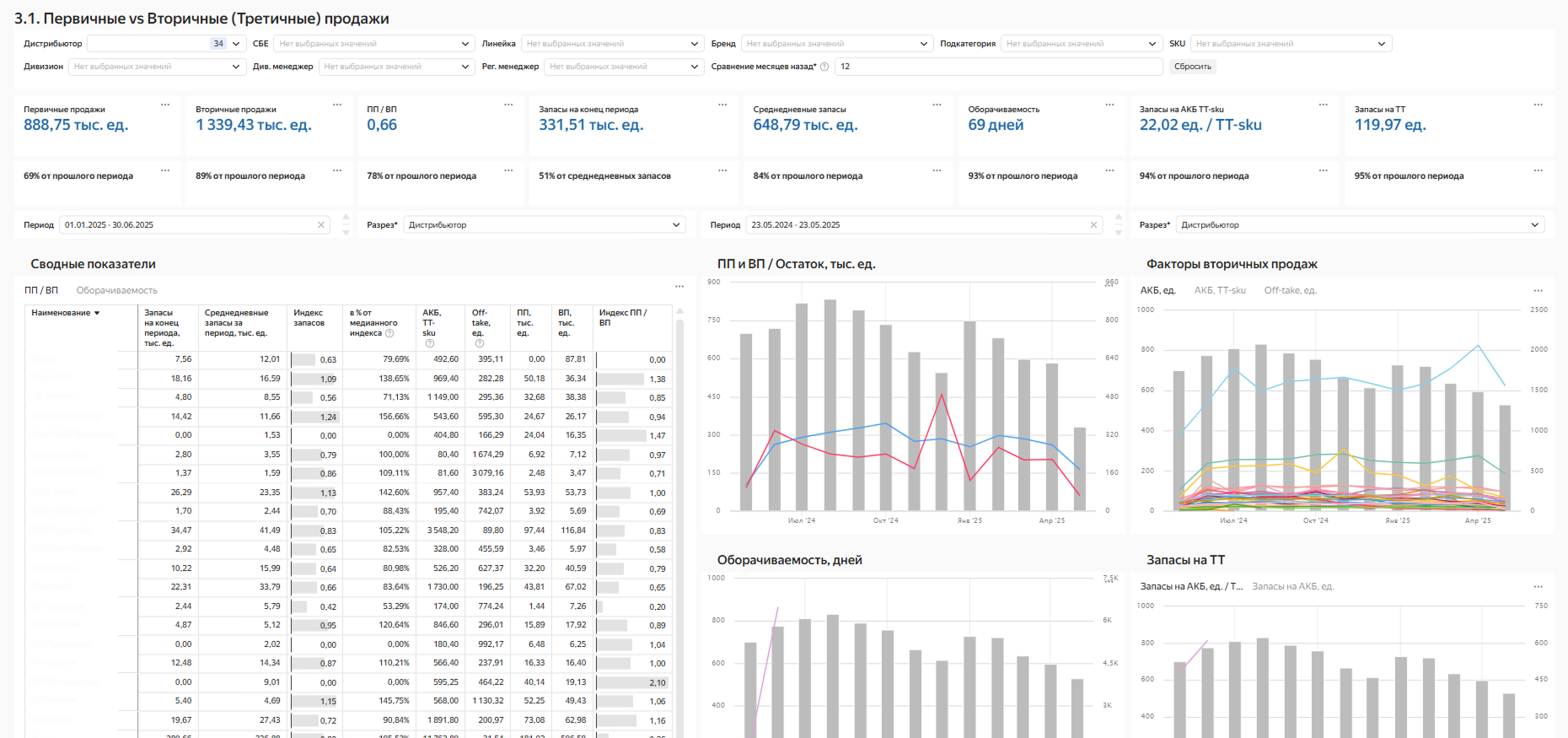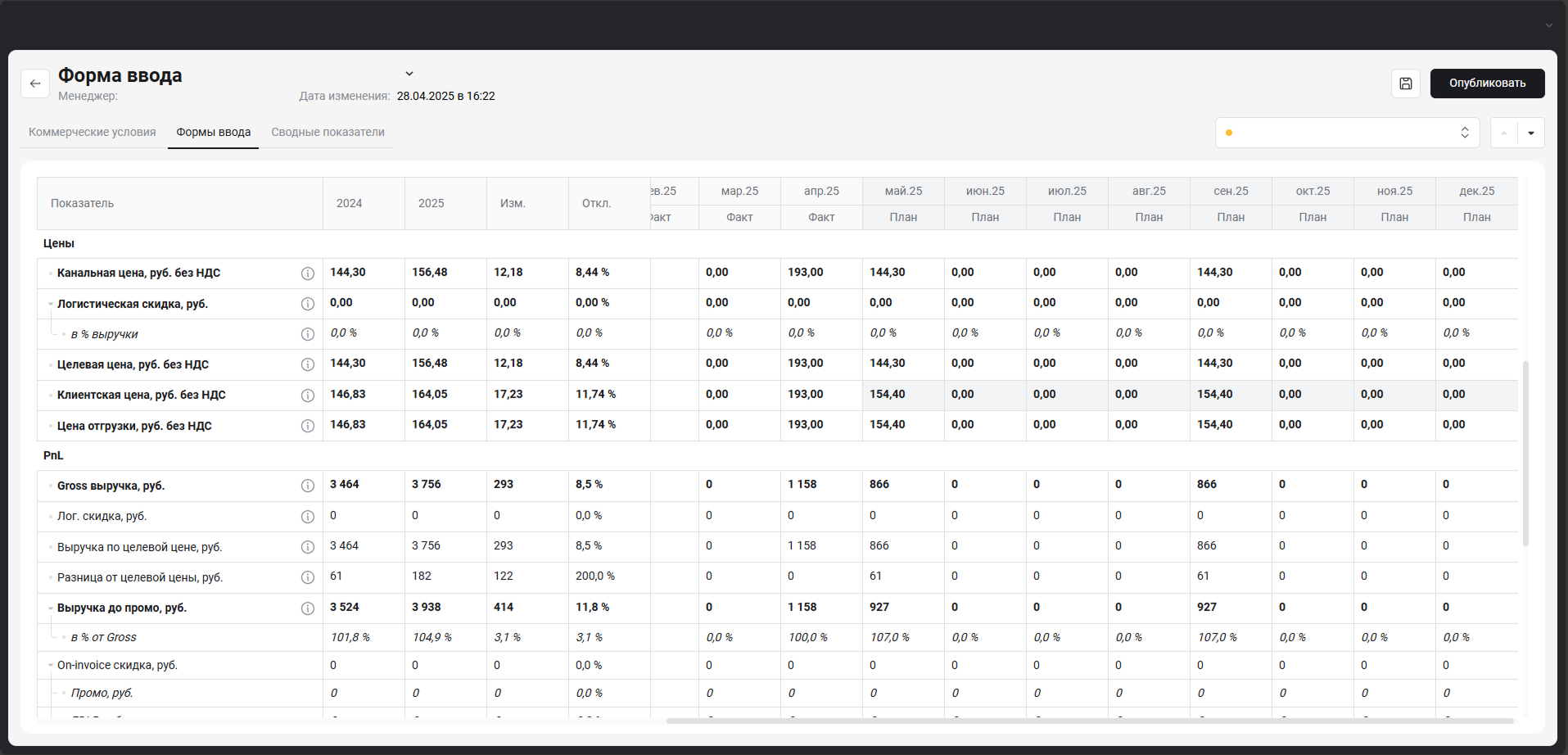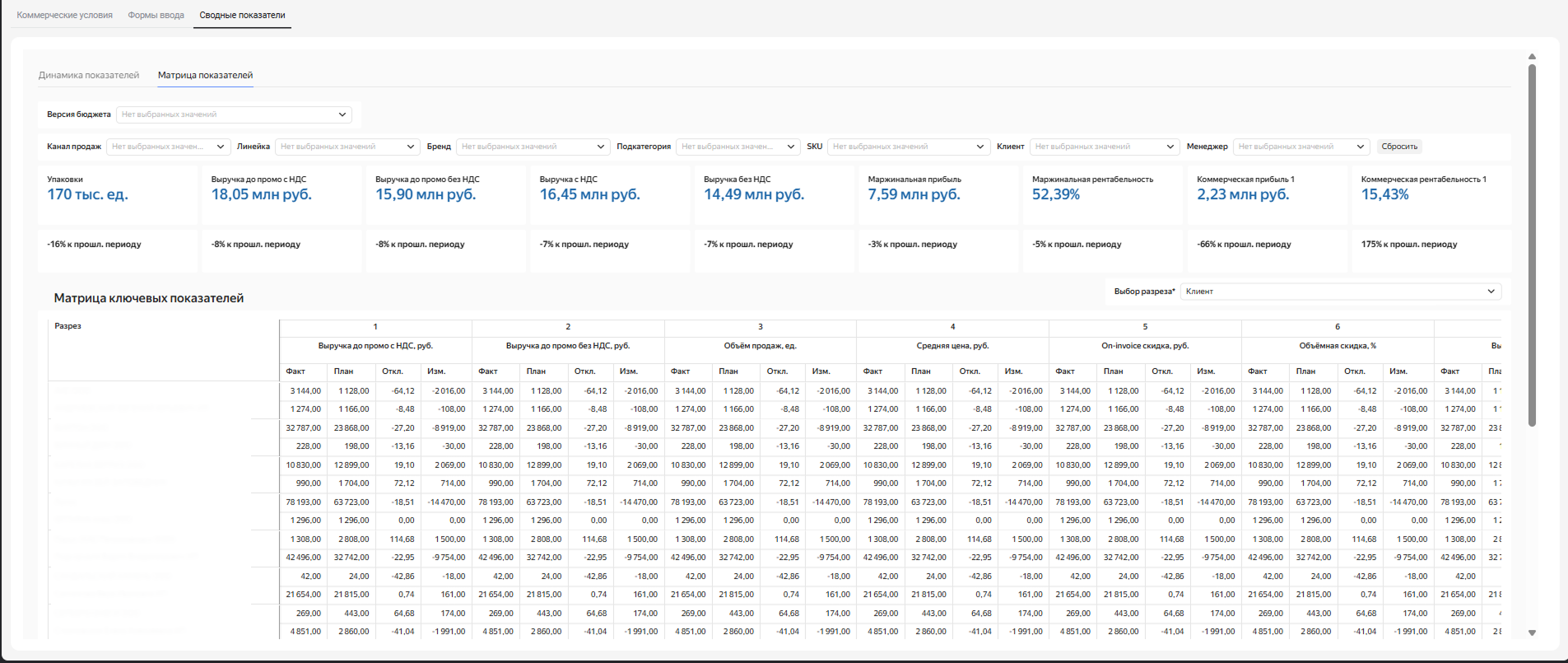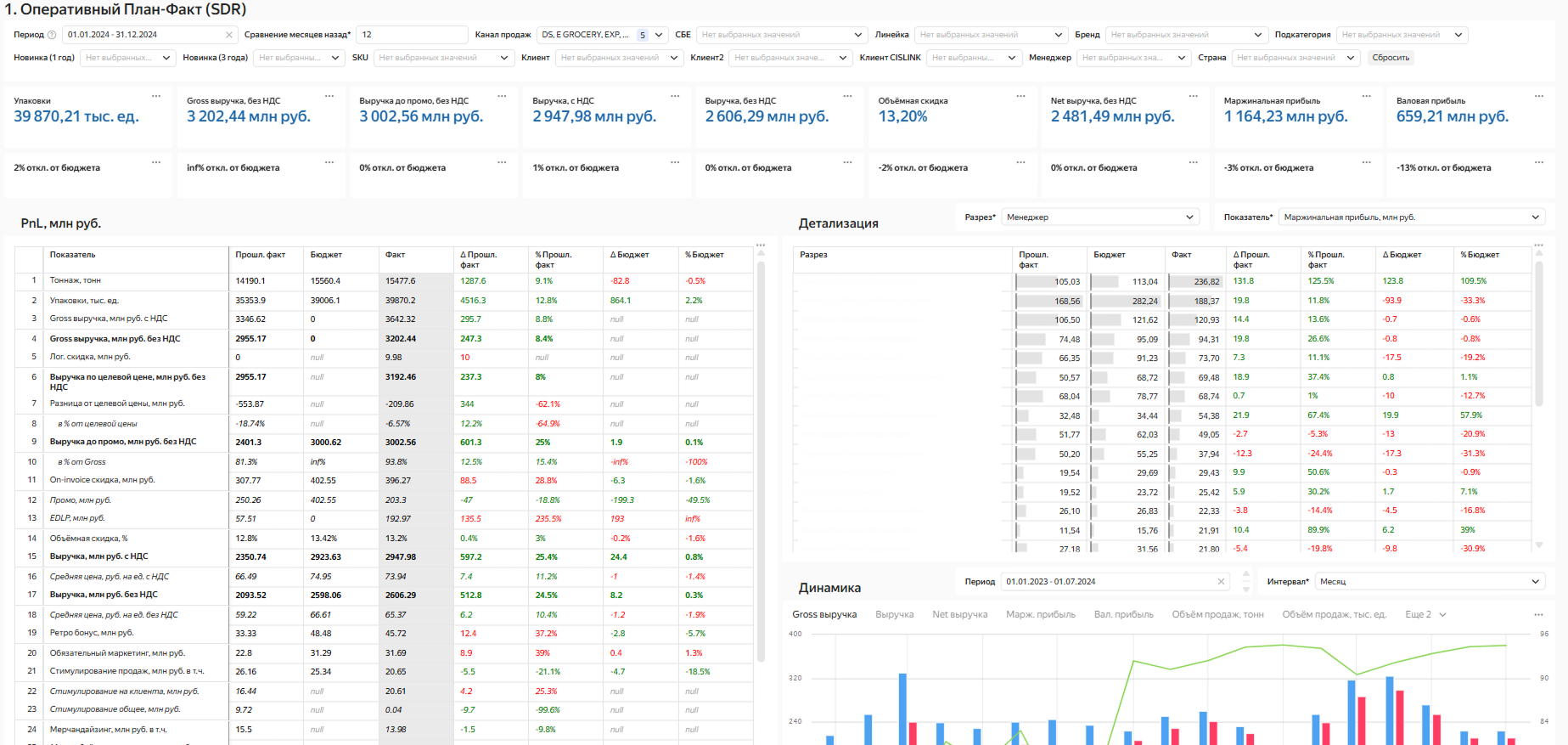
Optimizing Data Pipelines with Apache Iceberg and S3: How We Accelerated Parquet Processing
Our journey began with analyzing secondary sales and distributor data. The first step was developing interactive dashboards to visualize this data. The main dashboards included analytics on sales dynamics and product performance, as well as factor analysis. We then moved to primary sales, comparing them with secondary sales, which provided a more complete market picture.

The next stage involved connecting a database containing tertiary sales data. This source significantly expanded the available information, allowing us to deepen Big Data analytics. Currently, we continue to refine the dashboards to provide more comprehensive analysis of all data, and we are developing new visualization tools using business analytics.
Budgeting Service: Flexible Planning and Control

One of the key objectives was creating a budgeting system — a tool for filling budgets down to the SKU level for clients. Managers can:
- Set commercial conditions at different levels (brand, line, SKU, subcategory)
- View statistics for the actual period to analyze sales dynamics
- Plan budgets for future months with automatic recalculation of indicators
- Use digital tools for data management
The data is updated daily, ensuring information relevance. The service includes a DataLens dashboard with data access settings (RLS) for each user, allowing analysis of client dynamics using FMCG business analytics.

The system supports a role-based model:
- Managers work with their clients’ budgets
- Administrators can manage all clients, upload static data (e.g., cost price), and configure the budgeting period
Financial Analytics and Planning

The service includes P&L reporting with plan/fact analysis indicators. All stages are considered, from Gross revenue to Gross profit:
- Promo activities
- Commercial conditions
- Cost price
- Logistics and production expenses
Thus, we are creating and developing a unified ecosystem of analytics and budgeting that helps businesses make informed decisions based on current data using modern analytics tools.
The system currently includes 11 key dashboards that provide detailed planning capabilities.
Implementing digitalization of processes allows optimizing work with FMCG reporting and enhancing business process efficiency.